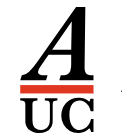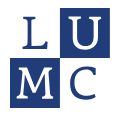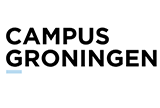Introduction
Erasmus University Rotterdam is a world-renowned public comprehensive research university located in Rotterdam, the Netherlands. It is named after Desiderius Erasmus, a famous Dutch humanist thinker in the Middle Ages. It has strong teaching strength in economic management, medicine and health, law and other fields.
Overview
Student size: 39,150 students in 2020.
Faculty size: 3,687 academic staff in 2020.
History and establishment time
In 1913, the Netherlands Business School was established.
In 1937, the school was renamed the Netherlands School of Economics.
In 1966, the Rotterdam Medical School was established.
In 1973, the Rotterdam Medical School and the Netherlands School of Economics merged to formally form the Erasmus University Rotterdam.
School strength
Faculty: 3687 Academic staff, including many internationally renowned experts and scholars in various disciplines, who are not only experienced in teaching, but also have made many remarkable achievements in scientific research, providing high-quality education and guidance for students.
Scientific research results: The school has a large number of scientific research projects and results output every year, and has published many high-impact academic papers and research reports in multiple disciplines such as medicine, economics, and law, which has promoted the academic development and practical application of related fields. For example, Erasmus Medical Center is in a leading position in research on disease gene analysis and other aspects.
Nature of the institution
Public university.
Educational philosophy
Aims to contribute to scientific progress and social development, while abiding by the ethical norms and international standards of the academic community, creating a space for teachers and students to conduct free training and research.
Focus on cultivating students into high-quality scholars, while emphasizing academic education that integrates knowledge development and application, and adopting an interdisciplinary education approach to make research both basic and applied.
Key laboratories and disciplines
Key laboratories:
The biomedical cluster of Erasmus Medical Center plays a leading role in the field of disease-related individual gene analysis.
The Forensic Molecular Biology Department has close cooperation with the Netherlands Forensic Institute.
Key disciplines:
Medicine: In 2009, the clinical medicine discipline of Erasmus Medical Center ranked first in Europe and 20th in the world; in 2016, the medical discipline of the University of Rotterdam ranked 34th in the world and first in the Netherlands in the QS professional ranking.
Economics: The basic and applied scientific research of Erasmus School of Economics enjoys a high reputation in the Netherlands and the world. In 2016, its accounting and finance major ranked QS world ranking 37th, first in the Netherlands; econometrics is ranked 38th in the world, first in the Netherlands.
Management: Rotterdam School of Management is the top business school in the Netherlands, ranked first among the top three in European research, and has long been ranked first in Europe in the number of papers published in top international business school journals.
Faculty
The school has 7 departments, namely the School of Economics, School of Management, School of Medicine, School of Law, School of Social Sciences, School of History, Culture and Communication, School of Philosophy, and more than 20 research institutes.
Ranking
Ranked 107th in the Times Higher Education World University Rankings 2024.
Ranked 158th in the QS World University Rankings 2025.
Expenses
Tuition fees: At the undergraduate level, the tuition fees for general majors are about 8,000-10,000 euros/year; at the master's level, the tuition fees vary depending on the major, such as the tuition fees for master's programs in the School of Economics and the School of Management are about 13,000-15,000 euros/year, and the tuition fees for master's programs in the School of Medicine are relatively higher.
Living expenses: In Rotterdam, the monthly living expenses, including accommodation, food, transportation, etc., are about 1000-1500 euros.
Campus
Environmental facilities: There are mainly Woudestein campus and Erasmus MC campus. Woudestein campus is the location of the main teaching and research facilities and scientific research and education departments. The campus environment is beautiful and green, with modern teaching buildings, libraries and other facilities; Erasmus MC campus is the location of the University of Rotterdam Medical Center. Its unique design makes it a landmark building in Rotterdam, with advanced internal medical facilities.
Campus culture: The school is highly internationalized, with students from all over the world and diverse cultures. Various academic lectures, seminars, cultural activities, etc. are often held on campus to enrich students' extracurricular life and promote exchanges and cooperation between students from different cultural backgrounds.
-

Delft University of Technology
-

Amsterdam University College
-

University of Amsterdam
-

TIAS School for Business and Society
-

Erasmus University Rotterdam
-

Leiden University Medical Center
-

University Medical Center Groningen
-

Saxion University of Applied Sciences
-

Academic Hospital Maastricht
-

Wageningen University and Research Centre
-

Mesoamerican University
-

Istmo University
-

Mariano Galvez University of Guatemala
-

Regional University of Guatemala
-

Galileo University
-

Francisco Marroquín University
-

Rafael Landívar University
-

University of the Valley of Guatemala
-

University of San Carlos of Guatemala
-

Technological Institute of Tlaxcala Plateau
-

Golfo University
-

Technological University of South Sonora
-

Technological University of Huejotzingo
-

Tizimín Institute of Technology
-

Chilpancingo Institute of Technology
